Disclosure: Meeple Mountain received a free copy of this product in exchange for an honest, unbiased review. This review is not intended to be an endorsement.
How often do you get to experience the thrill of discovering a great game? It’s an incredible feeling when you do, whether the game is a new release or a classic, but there’s something especially electrifying about finding one that’s hot off the presses. “I get to tell people about this,” you realize. “I get to proselytize.” It doesn’t happen often. Even at the frankly absurd rate that I, a reviewer of prodigious output, play new games, it doesn’t happen often. I have reviewed around fifteen new releases in six months for Meeple Mountain, and I haven’t played a single one that I thought was great.
Enter Radlands, the new two-player release from first-time designer Daniel Piechnick—a former member of the Magic: The Gathering stable—and publisher Roxley. It is, as you may have surmised, great.
Well, Don’t Waste Your Time Waiting
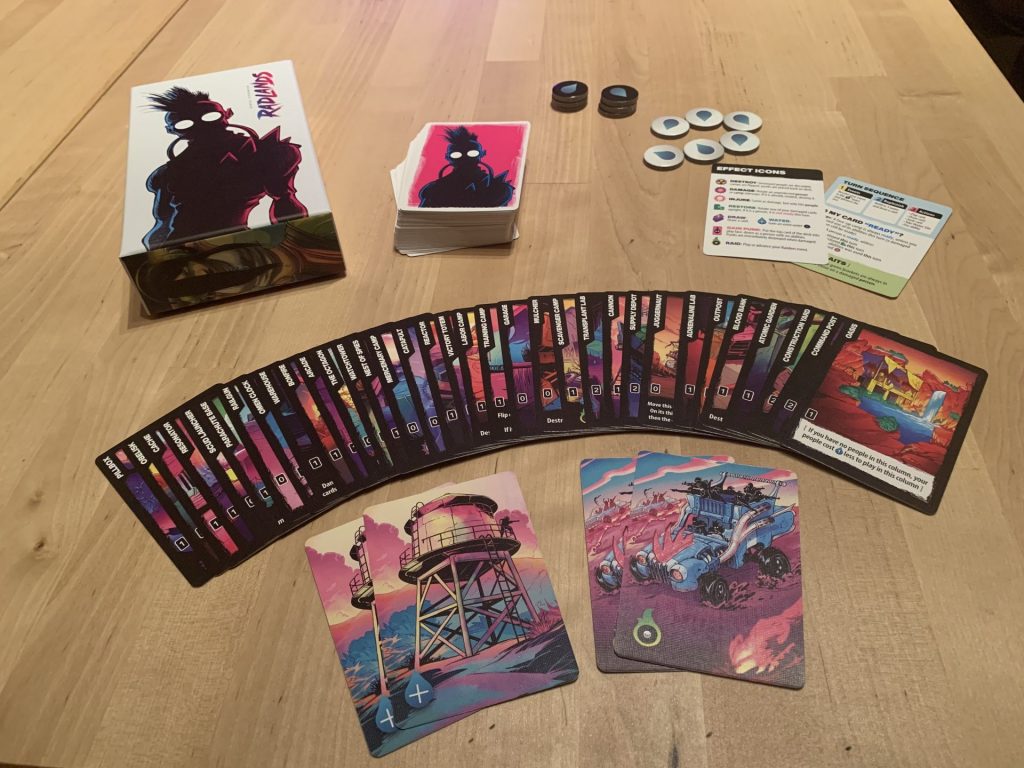
The moment the game hits the table, you can’t help but notice the striking design work from Lina CossetteI, Damien Mammoliti, and Manny Trembly. The card backs in the main deck feature an anonymous Punk in heavy shadow over a bright pink background. We’ve evolved past the Age of Beige in board games, but it’s rare to see color used so boldly. The deck is always greeted by an “ooh” from first time players, and that’s before they see all the illustrations on the other side. Radlands takes place in a vibrant post-apocalyptic world that splits the difference between Mad Max and Tank Girl, and looks every bit as fun as that sounds.
It’s quick to explain. Turns are straightforward, the goal of destroying the other player’s Camps is easy to understand, and the iconography has a low overhead. Players take turns using limited water reserves to pay for cards and abilities until there’s a winner, which usually takes a snappy 20–30 minutes. The deck consists of People and Event cards that can either be Played for a cost or Junked—discarded—for free, activating a quick and cheap action. Given how strapped for funds you are on every turn, a lot of the tactical juice comes from deciding how to use the limited cards you have. Strategy, the longer-term questions, comes from the Camps.
Workin’ in the Fields That’ll Get Your Back Burned
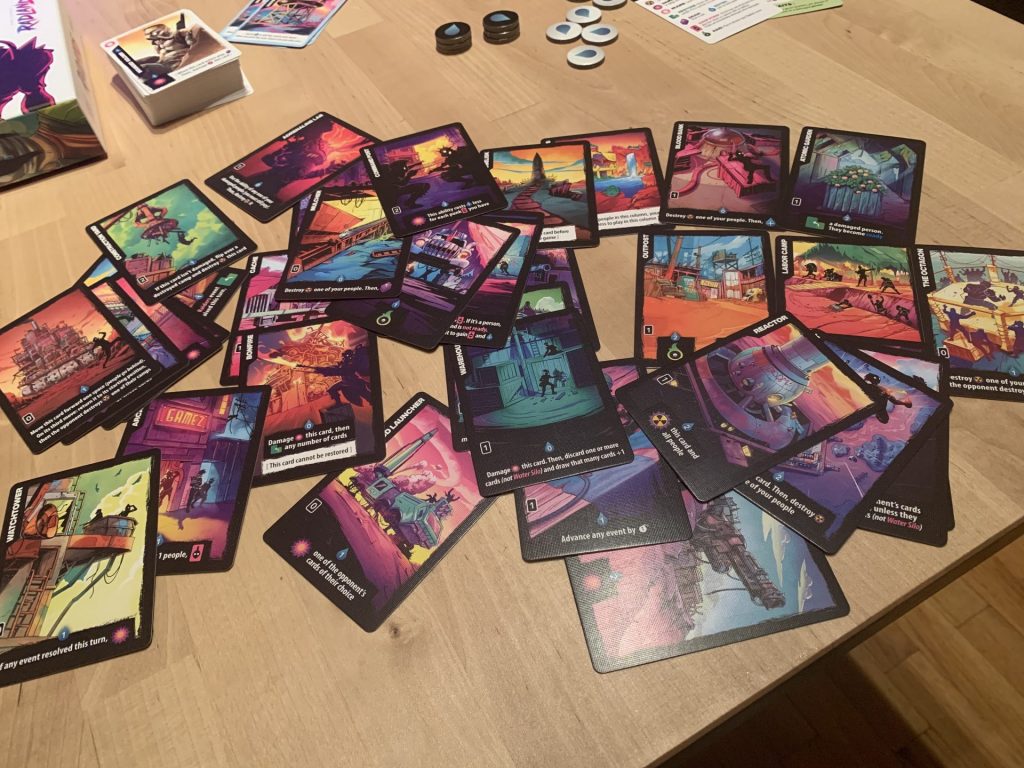
Radlands comes with 34 Camp cards. Each player chooses three from a hand of six during setup. Some seem powerful to the point of breaking the game, while others barely seem useful at all, but it’s all about how they interact. In an elegant bit of balancing, the number of cards in your starting hand is determined by the Camps you choose: the more powerful and aggressive your Camps are, the fewer cards you draw at the beginning of the game. Cards are a lean economy in this game—everything is a lean economy in this game—and choosing three bruisers may leave you hurting in the long run, since your opponent can sprint out ahead of you in the early game with all those Junk actions.
Workin’ ‘Neath the Wheel Till You Get Your Facts Learned
Let me tell you about the night I fell in love with Radlands. My roommate and I were playing a game in which I had the Mercenary Camp, an incredibly powerful card. I opened the game by using it to destroy one of his camps, and things only went downhill from there. The whole game took less than ten minutes, and there was little opportunity for Frank to turn the tide.
Worried that this might have indicated a balance issue, we decided to try again with the same setup. Once again, largely relying on the Mercenary Camp, I handily emerged victorious. Frank was able to delay the inevitable for much longer, but there was never a point where the outcome felt contested. This seemed like a real problem. It was my first game not using the introductory setup suggested by the manual, and we were immediately running into what seemed like an inevitable loss for one of the players.
I suggested we try one more time, trading setups so Frank was playing with my Camps, including the Mercenary Camp, and I was playing with his Camps. With some intentional and measured changes to how I was playing, the advantage afforded by the Mercenary Camp was easily managed, and I won the game handily.
The responsiveness of the design, the way I was forced/able to prioritize certain tactics long enough for the early advantage of that Camp to be negated, really impressed me, in a way I haven’t been impressed by a game in a while. Radlands rewards experience and thoughtful plays, even if it doesn’t involve much turn-to-turn strategy. The thrill of repeated plays is two-fold: you get the joy of discovering new Camp combos during setup and the satisfaction of figuring out how to play against whatever your opponent has.
[Guitar & Saxophone Solos]
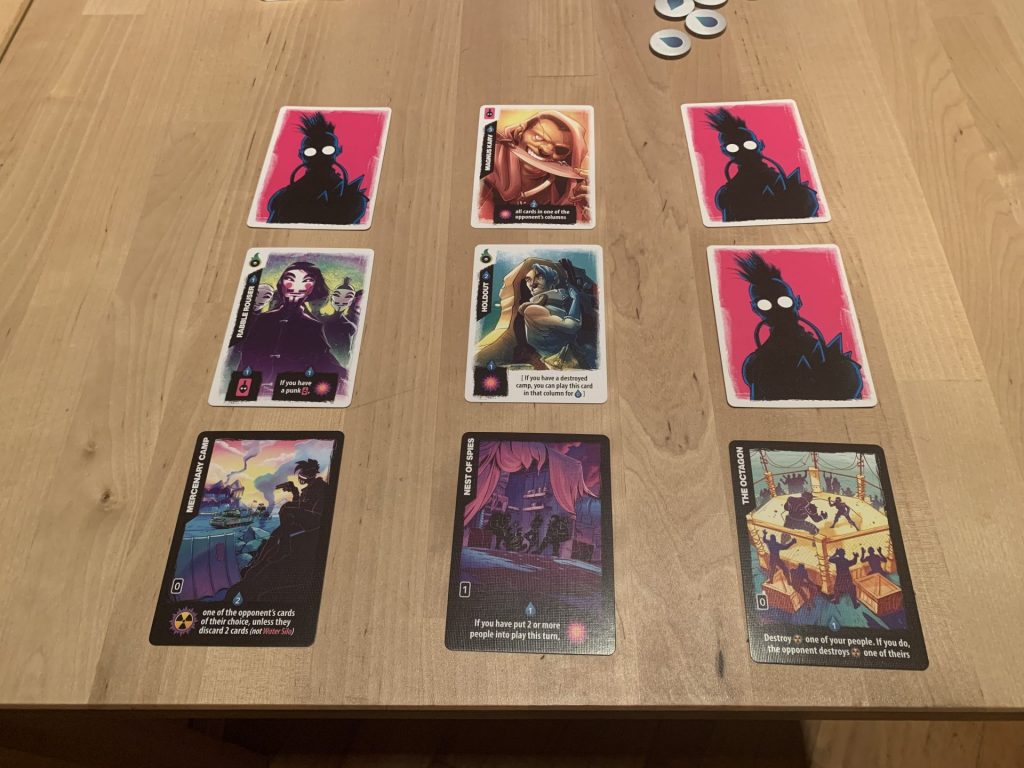
If you don’t like card games, where luck will always be a factor, you may want to take a pass. A recent match where I had a really exciting combination of Camps never took off because I kept drawing Event cards when I needed People. Radlands does reward good choices, but like many card games it reflects skill in aggregate rather than in the result of an individual match. It can be swingy, with just the right or wrong card draw changing the direction of momentum.
The good news here is that the game plays so quickly, you’re unlikely to play only one match. That three-match evening I talked about earlier lasted a total of about 80 minutes. If you find yourself wondering about choices you made, or if your Camps were stymied by poor draws, you can set it back up in ten seconds and give it another go.
I also want to be clear that Radlands is not a game of massive combos. You’re much too strapped for resources for that. Rather, it is a game of tough choices, of chewed fingernails and white knuckles. It’s a game where you have to get in what hits you can when the opportunity presents itself. I thought a lot about Mindbug while I was playing. The designs have much in common, but there is an element of control to Radlands that is missing from the coked out Mindbug. You have enough information here to make meaningful choices rather than being limited to best guesses.
Let the Broken Hearts Stand as the Price You Gotta Pay
Before wrapping up, it’s worth taking a moment to address Radland’s different editions. My review copy is the standard retail edition that will be available in stores. The deluxe version, which sells for $40 on Roxley’s website, upgrades the water tokens from chunky cardboard to chunkier plastic discs, and ups the print quality of the cards. $40 is a hefty price tag for a game this size, but I imagine the standard retail edition will sell for around $25-30, and I would say the increase in component quality is worth that extra cost if you can afford it. I can attest that after only eight plays, my water tokens are already starting to look a bit worse for wear.
The super deluxe edition, which retails through Roxley for $60 and for obscene markups on the secondary market—folks, it’s available to buy, it’s not a Kickstarter exclusive, don’t pay $120 for it—nests the deluxe edition box inside a larger box that includes two neoprene mats. As a resident of New York City, the idea of turning a game that’s slightly larger than my cellphone into a box that’s larger than my laptop feels wrong. You don’t need the mats to play the game, snazzy though they are, and I wouldn’t recommend splurging for the super deluxe edition unless space and money aren’t issues.
Regardless of the edition you choose, Radlands is an excellent game. It has high replayability thanks to the variety of Camps, it’s short and punchy, it has evocative art, and the rules are streamlined while rewarding repeated plays. It’s the kind of game where, an hour after a match finishes, you’ll find yourself thinking, “Oh, maybe if I’d done this instead of that…” I love a good post-mortem, much as I love Radlands.


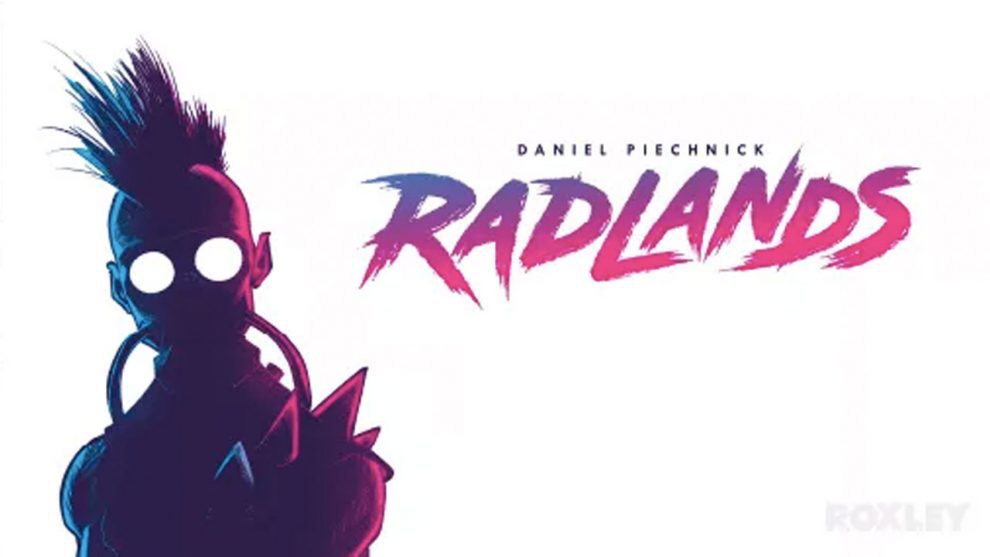
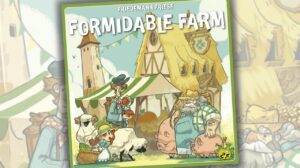
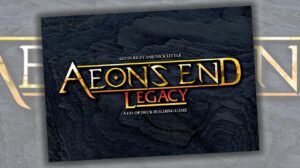
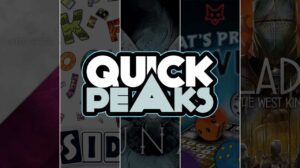
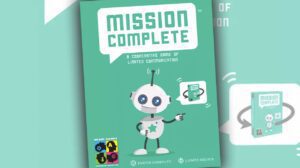




Mr. Lynch: I like your reviews as much as I like the Badlands sax solo, which is to say: A LOT. Kudos.
That’s incredibly kind of you, Joshua! Thank you for saying so, and for reading.